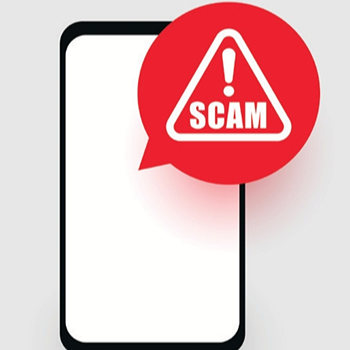BEWARE OF a fake traffic challan

A new wave of cybercrime is becoming a growing concern, where citizens are falling prey to fake traffic challan messages sent via SMS. The alarming rise in such incidents has prompted Cyber Police to warn the public against clicking on suspicious links and downloading unknown files. Read on, to be aware about such frauds, preventive steps, and more
What is a fake traffic challan fraud?

Fraudsters send a fake traffic challan to the driver on the SMS, and s(he) may think that they might have breached traffic rules while driving, they tend to open the link and click on it. When they try to complete the payment through mobile banking, that’s when the account details get leaked to the fraudster. Then after getting full control of the mobile phones, these fraudsters without the knowledge of the victim, rob the money from their bank account.
PREVENTIVE MEASURES- Do not download APK files: It may contain malware that gives hackers full control over your phone.
- Confirm vehicle details: Fraudulent messages often contain incorrect vehicle details, always double-check.
- Use the government official portal: Instead of clicking links in SMS, visit the government website to check and pay challans.
- Report fraud: If you suspect you’ve been scammed, file a complaint at https://cybercrime.gov.in immediately.
- Checking traffic fine: There’s another important way to check if the e-challan sent via text is valid. Log on to - https://echallan.parivahan. gov.in/index/accused-challan, to verify if the ticket is genuine.
Modus operandi:
Cybercriminals send SMS that look like genuine traffic challans from the RTO. These messages include links that appear legitimate, but are slightly altered, using - https:// echallanparivahan.in/, instead of the official - https://echallan.parivahan.gov.in/, is used.The moment a user clicks the link and attempts to pay the fine, APK files containing malwares or remote access software gets installed on their device. This grants fraudsters complete access to phones, banking apps, OTPs, and sensitive personal data.
Case study:
In one recent case, a 33-year-old woman from Pune, lost `7 lakh after clicking on a fake challan for just `500 fine. Once she unknowingly downloaded the malicious APK file, it immediatelly gave the hackers access to her phone. The cyber hackers quickly disabled her social media accounts and gained control over her banking information, and transferred money from her account.
A senior inspector with Pune Cyber Police, Swapnali Shinde said, “In recent cases it has been observed that the hackers create unknown APK files and when the victims click on it, the hackers get complete access to their phones, where they can read all the messages, and even obtain banking details.
She added, “To avoid such instances, people should be aware and not click on any unknown links, which they receive on their mobile phones.”
Meanwhile, the Pune Traffic Branch is also aware of the frauds happening in the city, and is spreading awareness about the fake traffic challan fraud.